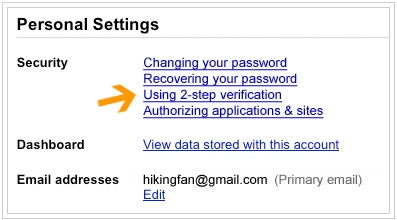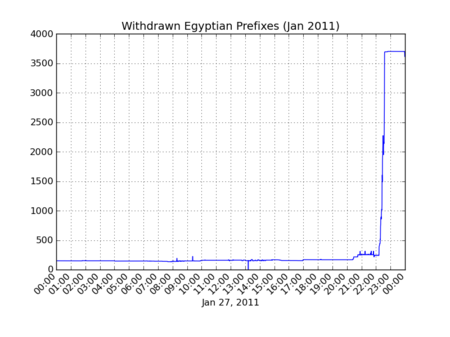Find Our Latest Video Reviews on YouTube!
If you want to stay on top of all of our video reviews of the latest tech, be sure to check out and subscribe to the Gear Live YouTube channel, hosted by Andru Edwards! It’s free!
Latest Gear Live Videos
Google Chrome extension blocks content farms from search results

Posted by Patrick Lambert Categories: Google, Internet, Software,

Google announced a new extension for their Chrome browser, which allows users to block specific sites from search results. As an example, they show that when looking for a specific query, some content farms may have top spots in the engine, but you may not want to see these results. With the extension, you'll be able to block those results, never seeing that site appear in search results anymore. This extension only works on Chrome right now, and is being called an early test.
Read More  | Google Blog
| Google Blog
Gallery: Google Chrome extension blocks content farms from search results
Advertisement
Google rolls out enhanced 2-step security feature

Posted by Patrick Lambert Categories: Google, Internet,

Back in September, Google introduced the ability to add two-step verification for Google Apps accounts. What this means is that in order to log into your Google account, you not only enter your username and password, but you also enter an ever changing code. The code is sent to you by SMS, or can be found by using an iPhone, Blackberry, or Android app. This security feature makes it so that if someone finds your password by looking over your shoulder, phishing it, guessing it, or sniffing it from whichever network or computer you use, they will be unable to access your account, because they won't have access to this second factor authentication.
Now, Google just announced that they are rolling out the feature for all users. Over the coming days, a new option will appear in the Security tab of your Google Account. The feature is optional, and will allow you to use this option to better protect your account, either by receiving an automated call, SMS, or by using an app on your phone. This only occurs when you need to actually log on, which only happens on a new system or after a few months of use, so you won't need to do this every time you check your email. The process is not completely painless. The sign-up involves registering a backup number and one-time password, and you need to make special cases for apps which may need access to your Google account but do not support this feature, such as a desktop mail app. Still, it's a very good security measure, which everyone should look into.
Read More  | Google Blog
| Google Blog
Gallery: Google rolls out enhanced 2-step security feature
Huge Slacker Radio Plus giveaway!

Posted by Andru Edwards Categories: Announcements, Features, Internet, Music,
 Here at Gear Live, we love us some Slacker. If you don’t know, Slacker is a fantastic radio’s streaming music service. It has millions of songs in its catalogue, and real DJs actually control their channels, which means you get a great mix of songs that go well together. While Slacker is free, they also have a service called Slacker Radio Plus, which adds the following perks:
Here at Gear Live, we love us some Slacker. If you don’t know, Slacker is a fantastic radio’s streaming music service. It has millions of songs in its catalogue, and real DJs actually control their channels, which means you get a great mix of songs that go well together. While Slacker is free, they also have a service called Slacker Radio Plus, which adds the following perks:
- Unlimited Skips
- Unlimited Song Requests
- No Audio or Banner Ads
- Complete Lyrics
- Over 2 Million Songs
- Cache stations to smartphones for offline listening
- ABC News and headline news updates for any station
- "Peek Ahead" artist and album previews
We said this would be big, so here’s what we're gonna do - we are going to give away:
- FIVE one-year subscriptions to Slacker Radio Plus
- FIVE three-month subscriptions to Slacker Radio Plus
- FIVE one-month subscriptions to Slacker Radio Plus
We are going to make it ridiculously easy to enter as well. All you need to do is become a fan of Gear Live on Facebook, and leave a comment on our wall - feel free to enter as many times as you'd like. That’s it! On Friday we will select fifteen random entrants and hit them with the goods.
Gallery: Huge Slacker Radio Plus giveaway!
Is a Farmville for Dummies book really necessary?

Posted by Andru Edwards Categories: Internet, Video Games,
How do you justify the existence of a book that lays out the concept and strategy to succeed in Farmville? Especially when there are sites that can help you free of charge. Co-author Kyle Orland of Farmville for Dummies sat down with Ars Technica to make an argument for putting the casual Internet game into layman's terms.
"Sure, Farmville isn't a particularly difficult game—it practically holds your hand in telling you how to play, and there's a limited amount of strategy to playing," Orland told Ars. "Some of the sections of the game—especially the farmer's market and some aspects of animal tending—require multiple, time-lapsed steps to complete successfully, and the game only gives one screen of text-heavy explanation for how to go about them."
Click to continue reading Is a Farmville for Dummies book really necessary?
Gallery: Is a Farmville for Dummies book really necessary?
Metered Internet coming to Canada [Update: Maybe not!]

Posted by Patrick Lambert Categories: Broadband, Internet,

UPDATE: Looks like Canada officials aren't gonna let this one slide - good on them! The CRTC "should be under no illusion—the Prime Minister and Minister of Industry will reverse this decision unless the CRTC does it itself," a member of Canada's conservative government told the Toronto Star on Wednesday.
"Frankly, a decision like this is clearly not in the best interest of consumers," the unnamed senior official added. "This is a bread-and-butter issue."In a move that may well be a sign of things to come in the US and elswhere, Canada's CRTC (the equivalent to the FCC) made a very controversial decision recently, which allows incumbent telcos like Bell Canada to enact usage based billing, not only to their own customers, but to those of the local ISPs that resell bandwidth. Since Bell Canada is the major telephone company in Canada, that basically means that this applies to all local DSL providers. As a striking example, TekSavvy, which is a local ISP in Ontario, is forced to bring down the bandwidth cap from 200GB per month to 25GB. It's likely that most Canadians will feel the much increased charges at some point if they wish to use the Internet for large downloads, such as streaming Netflix, downloading games on Steam, buying music on iTunes, or anything that requires a lot of bandwidth.
Since then, there's been a lot of grassroots movements to protest these new rules. The group OpenMedia has a petition which has been signed over 350,000 times so far, as well as a good account of what goes on politically and in the media about the situation. Some point out at the conflict of interest that incumbent telcos are in, like in Bell Canada's case, the fact that they own the CTV television network, and thus compete directly with Netflix. The Prime Minister has heard the complaints and will review the CRTC's decision. This could be a major turning point for the Internet, first across Canada, and potentially elsewhere too.
Read More  | StopTheMeter
| StopTheMeter
Gallery: Metered Internet coming to Canada [Update: Maybe not!]
News Corp.‘s iPad publication, The Daily, now available

Posted by Andru Edwards Categories: Apple, Handhelds, Internet, Software, Videos,
News Corp. mogul Rupert Murdoch unveiled his iPad-only newspaper, The Daily, today at the Guggenheim Museum in New York City.
"In the tablet era, there's room for a fresh and new voice," Murdoch said.
The Daily will feature nearly 100 pages of original content produced each day. Among the bells and whistles included are HD video and 360 degree photos. Readers can subscribe to the publication which will be delivered to the iPad automatically each morning and can opt to be billed each week for $0.99 or each year for $39.99. Murdoch said that comes down to $0.14 a day.
On hand were Apple's head of Internet Services, Eddie Cue; The Daily Editor Jesse Angelo; and News Corp.'s head of digital Jon Miller.
"It's the first national daily news publication built from the ground up for the iPad," Cue said.
Click to continue reading News Corp.‘s iPad publication, The Daily, now available
Gallery: News Corp.‘s iPad publication, The Daily, now available
Microsoft Bing caught stealing search results from Google

Posted by Patrick Lambert Categories: Corporate News, Google, Internet, Microsoft,


In a very controversial yet fascinating study, Google has exposed what looks like blatant copying of search results by Microsoft's own search engine, Bing. As a test, Google invented 100 query terms, words that do not exist, and they made the search engine return a single link to a site that had nothing to do with the search term. Then, a group of engineers used Internet Explorer 8, equipped with the Bing toolbar, to search for those terms on Google. Low and behold, soon after, Bing started returning the exact same search results. Since the terms were deliberate and random, there can be no coincidence. From the apparent evidence, Microsoft clearly used either IE8, Windows itself, or the Bing toolbar to find out what people searched for on Google, what results they get, and then used that to improve their own Bing site. Check out the blog post for all the details on Google's claim. Something tells me this battle is far from over.
Read More  | Google Blog
| Google Blog
Gallery: Microsoft Bing caught stealing search results from Google

In light of the severe Internet disruptions that are happening in Egypt, where the government cut off all Internet access and SMS messages in and out of the country in an attempt to silence the 80 million people living there, we've seen a number of technologies come up to break the blockade. People have been using ham radios, satellite phones, and fax machines to make their voices heard. Now, Google and Twitter have partnered up over the weekend to create a phone-to-tweet service, where people from Egypt can make calls to an international number, and their messages will be tweeted automatically. Yet another example that proves you can't silence an entire people, and the communication always finds a way. Very cool.
Read More  | Google Blog
| Google Blog
Gallery: Google and Twitter add tweet by phone for Egypt
Will the US get an Internet Kill Switch like Egypt?

Posted by Andru Edwards Categories: Editorial, Internet,

With reports of Egypt's government completing shutting down the Internet in the country, talk about an "Internet kill switch" bill in the U.S. has reemerged. Could it happen here?
The bill in question is the Protecting Cyberspace as a National Asset Act of 2010, a cyber-security measure introduced in June by Sen. Joseph Lieberman. It was an over-arching cyber-security measure that, among other things, would create an office of cyberspace policy within the White House and a new cyber-security center within the Homeland Security Department.
A provision that got the most attention, however, was one that gave the president the power to "authorize emergency measures to protect the nation's most critical infrastructure if a cyber vulnerability is being exploited or is about to be exploited."
Some interpreted that to mean that the president would have the authority to shut off the Internet at random. Lieberman refuted the "Internet kill switch" assertion as "misinformation" during an appearance on CNN, and the Homeland Security and Governmental Affairs Committee, which he chairs, later published a "myth vs. reality" fact sheet on the bill.
Click to continue reading Will the US get an Internet Kill Switch like Egypt?
Gallery: Will the US get an Internet Kill Switch like Egypt?

As the violence and protests develop in Egypt, Renesys, an Internet research firm, published a fascinating overview of what happened to the country's Internet connections. At 22:34 UTC, all the entry points into the country were cut in a matter of minutes. The four major Internet providers in Egypt were ordered to cut all links, by removing the 3,500 routes that packets could take, leading to no valid path for the traffic to reach any addresses inside of the country, save for one small network. Almost a day later, they estimate that around 93% of traffic is still cut off.
Unlike earlier protests in Tunisia and other countries, where governments tried unsuccessfully to block invidual sites like Twitter and Facebook, people still finding ways around the blocks through proxies, this time the complete isolation from the global Internet was an unprecedented event. It's still not known what will happen to the economy of the country if these measures stay for longer than a few days.
Read More  | Renesys
| Renesys

















